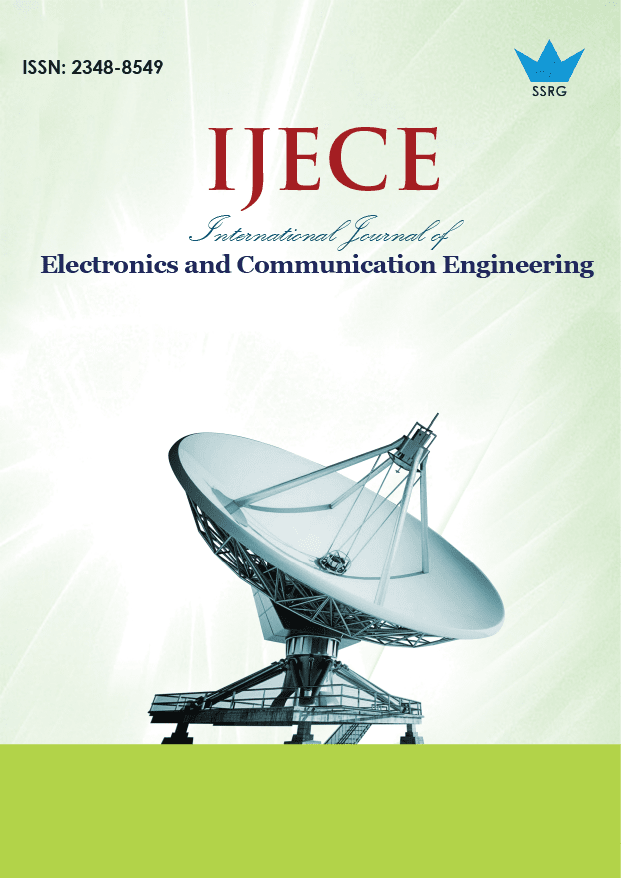A Privacy-Preserving Federated Recommender System with Neuro-Fuzzy Modeling and Local Differential Privacy

| International Journal of Electronics and Communication Engineering |
| © 2025 by SSRG - IJECE Journal |
| Volume 12 Issue 8 |
| Year of Publication : 2025 |
| Authors : Thenmozhi Ganesan, Palanisamy Vellaiyan |
How to Cite?
Thenmozhi Ganesan, Palanisamy Vellaiyan, "A Privacy-Preserving Federated Recommender System with Neuro-Fuzzy Modeling and Local Differential Privacy," SSRG International Journal of Electronics and Communication Engineering, vol. 12, no. 8, pp. 384-394, 2025. Crossref, https://doi.org/10.14445/23488549/IJECE-V12I8P133
Abstract:
The increasing reliance on personalized recommender systems in e-commerce platforms has brought major challenges in terms of data privacy, interpretability, and the model’s sturdiness. Traditional recommender systems are often mandated to access raw user data to predict relevant preferences, leading to severe privacy risks. Federated recommender system is a promising paradigm that enables decentralized model training to rectify the limitations by not exposing the unmodified user data, yet faces central server’s inference attacks and lacks in defending predictions. To bridge these research gaps, this study attempts a novel hybrid neuro–fuzzy model that integrates the strength of fuzzy membership function with a deep neural network in the federated learning environment to enhance transparency in personalized recommendations. Additionally, local differential privacy is employed with Laplace noise injection to the locally trained model gradients, thereby maintaining user privacy without revealing sensitive information. The model has been collaboratively trained on local client devices, aligning with the concepts of decentralized learning. Extensive experiments were undertaken on the real-world MovieLens 100K and 1M datasets to examine the efficacy of the presented mechanism. Research findings highlight that the studied neuro-fuzzy architecture surpasses the conventional models in terms of Normalized discounted cumulative gain, precision, recall, root mean squared error and mean absolute error over multiple measurements of privacy budget. The proposed approach achieved a strong balance among relevancy accuracy (0.205 obtained for the 100 K dataset and 0.165 achieved for the 1 M dataset), privacy and interpretability.
Keywords:
Collaborative filtering, Deep Neural Network, Federated learning, Fuzzy Logic, Laplace noise injection and recommender system.
References:
[1] Zehua Sun et al., “A Survey on Federated Recommendation Systems,” IEEE Transactions on Neural Networks and Learning Systems, vol. 36, no. 1, pp. 6-20, 2025.
[CrossRef] [Google Scholar] [Publisher Link]
[2] Shivangi Gheewala, Shuxiang Xu, and Soonja Yeom, “In-Depth Survey: Deep Learning In Recommender Systems—Exploring Prediction and Ranking Models, Datasets, Feature Analysis, and Emerging Trends,” Neural Computing and Applications, vol. 37, no. 17, pp. 10875-10947, 2025.
[CrossRef] [Google Scholar] [Publisher Link]
[3] Yongjie Du et al., “Federated Matrix Factorization for Privacy-Preserving Recommender Systems,” Applied Soft Computing, vol. 111, 2021.
[CrossRef] [Google Scholar] [Publisher Link]
[4] Xinna Wang et al., “Federated Deep Recommendation System Based on Multi-View Feature Embedding,” IEEE 9th International Conference on Data Science and Advanced Analytics, Shenzhen, China, pp. 1-9, 2022.
[CrossRef] [Google Scholar] [Publisher Link]
[5] Tribhuwan Kumar et al., “Fuzzy Logic and Machine Learning-Enabled Recommendation System to Predict Suitable Academic Program for Students,” Mathematical Problems in Engineering, vol. 2022, no. 1, 2022.
[CrossRef] [Google Scholar] [Publisher Link]
[6] Yasir Rafique et al., “An Enhanced Integrated Fuzzy Logic-Based Deep Learning Techniques (EIFL-DL) for the Recommendation System on Industrial Applications,” PeerJ Computer Science, vol. 10, pp. 1-35, 2024.
[CrossRef] [Google Scholar] [Publisher Link]
[7] Yue Wu et al., “FedDeepFM: A Factorization Machine-Based Neural Network for Recommendation in Federated Learning,” IEEE Access, vol. 11, pp. 74182-74190, 2023.
[CrossRef] [Google Scholar] [Publisher Link]
[8] Farzad Kaviani, “Recommender System in Social Networks Using Fuzzy Logic,” International Conference on Electrical, Computer, Communications and Mechatronics Engineering, Tenerife, Canary Islands, Spain, pp. 1-7, 2023.
[CrossRef] [Google Scholar] [Publisher Link]
[9] R.V. Karthik, and Sannasi Ganapathy, “A Fuzzy Recommendation System for Predicting the Customers Interests Using Sentiment Analysis and Ontology in e-Commerce,” Applied Soft Computing, vol. 108, 2021.
[CrossRef] [Google Scholar] [Publisher Link]
[10] Weiqing Li et al., “A Federated Recommendation System Based on Local Differential Privacy Clustering,” Proceedings - 2021 IEEE SmartWorld, Ubiquitous Intelligence and Computing, Advanced and Trusted Computing, Scalable Computing and Communications, Internet of People, and Smart City Innovations, SmartWorld/ScalCom/UIC/ATC/IoP/SCI, Atlanta, GA, USA, pp. 364-369, 2021.
[CrossRef] [Google Scholar] [Publisher Link]
[11] Xiang Li et al., “LDPMF: Local Differential Privacy Enhanced Matrix Factorization for Advanced Recommendation,” Knowledge-Based Systems, vol. 309, 2025.
[CrossRef] [Google Scholar] [Publisher Link]
[12] Yongxin Deng et al., “FedSlate:A Federated Deep Reinforcement Learning Recommender System,” IEEE Transactions on Emerging Topics in Computational Intelligence, pp. 1-15, 2024.
[CrossRef] [Google Scholar] [Publisher Link]
[13] Zihang Xu, Chiawei Chu, and Shiyang Song, “An Effective Federated Recommendation Framework with Differential Privacy,” Electronics, vol. 13, no. 8, pp. 1-17, 2024.
[CrossRef] [Google Scholar] [Publisher Link]
[14] Jakub Gorski et al., “Fuzzy-Logic-Based Recommendation System for Processing in Condition Monitoring,” Sensors, vol. 22, no. 10, pp. 1-32, 2022.
[CrossRef] [Google Scholar] [Publisher Link]
[15] Amany Sami et al., “A Deep Learning Based Hybrid Recommendation Model for Internet Users,” Scientific Reports, vol. 14, no. 1, pp. 1-19, 2024.
[CrossRef] [Google Scholar] [Publisher Link]
[16] Vito Walter Anelli et al., “FedeRank: User Controlled Feedback with Federated Recommender Systems,” Lecture Notes in Computer Science, vol. 12656, pp. 32-47, 2021.
[CrossRef] [Google Scholar] [Publisher Link]
[17] Weiwei Wang, Wenping Ma, and Kun Yan, “FSPPCFs: A Privacy-Preserving Collaborative Filtering Recommendation Scheme Based on Fuzzy C-Means and Shapley Value,” Complex and Intelligent Systems, vol. 11, no. 1, pp. 1-18, 2025.
[CrossRef] [Google Scholar] [Publisher Link]
[18] Chenyuan Feng et al., “Robust Privacy-Preserving Recommendation Systems Driven by Multimodal Federated Learning,” IEEE Transactions on Neural Networks and Learning Systems, vol. 36, no. 5, pp. 8896-8910, 2025.
[CrossRef] [Google Scholar] [Publisher Link]
[19] MovieLens 100K Dataset, GroupLens. [Online]. Available: https://grouplens.org/datasets/movielens/100k/
[20] MovieLens 1M Dataset, GroupLens. [Online]. Available: https://grouplens.org/datasets/movielens/1m/
[21] Stephan Bartl, Kevin Innerebner, and Elisabeth Lex, “Differentiable Fuzzy Neural Networks for Recommender Systems,” Adjunct Proceedings of the 33rd ACM Conference on User Modeling, Adaptation and Personalization, New York City USA, pp. 343-348, 2025.
[CrossRef] [Google Scholar] [Publisher Link]

 10.14445/23488549/IJECE-V12I8P133
10.14445/23488549/IJECE-V12I8P133